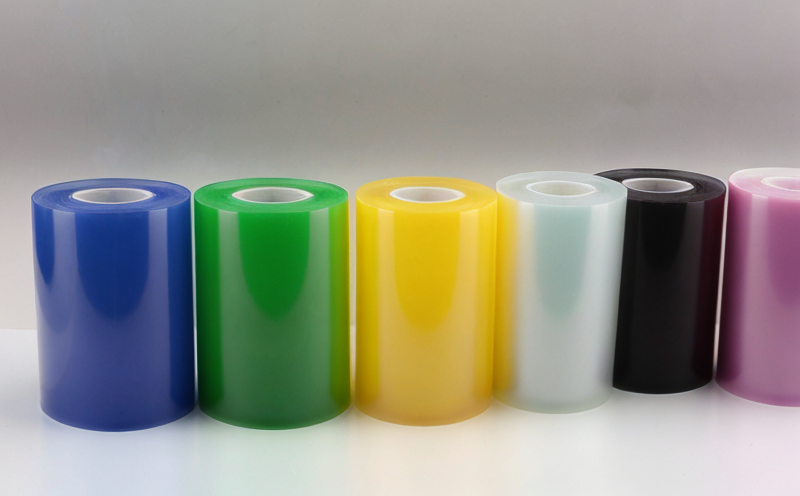ISO 175 Chemical Resistance Testing of Plastic Films
The ISO 175 standard provides a comprehensive framework for assessing the chemical resistance of plastic films and sheets. This test is critical in ensuring that packaging materials, containers, and other products made from polymeric materials do not degrade or fail when exposed to various chemicals during storage, transport, or use.
The process involves placing a specimen cut from the film into a container with a specified chemical solution under controlled conditions (temperature and time). The specimen is then evaluated for changes in appearance, texture, physical properties such as tensile strength, flexibility, and permeability. If significant alterations are observed, it indicates poor chemical resistance.
Understanding the chemical resistance of plastic films is essential across multiple sectors including pharmaceuticals, food packaging, cosmetics, and industrial manufacturing. In the pharmaceutical industry, for instance, ensuring that containers do not leach harmful substances into drug products can prevent contamination and ensure product safety. For food packaging applications, maintaining integrity against acidic or alkaline environments is crucial to avoid potential spoilage.
The testing methodology outlined in ISO 175 is widely recognized and adopted globally due to its stringent quality control measures and reproducibility across different laboratories. Compliance with this standard helps manufacturers meet regulatory requirements set by bodies like the FDA or other national authorities.
The typical procedure involves selecting a representative sample of the plastic film, preparing it according to specified dimensions, immersing it in various solvents for varying durations, and subsequently examining any changes. Commonly used chemicals include water, ethanol, acetone, and hydrochloric acid. Each solvent has its own set of guidelines regarding concentration, temperature, and incubation period.
For accurate results, careful attention must be paid to the preparation steps including cutting uniform strips from the film roll, ensuring they are free from defects or imperfections that could skew test outcomes. After exposure to chemicals, visual inspection followed by quantitative analysis may be necessary depending on the type of property being evaluated.
This testing service not only ensures product integrity but also supports innovation within research and development teams who can rely on consistent data throughout their design cycles. By understanding how different materials perform under varying conditions, engineers can make informed decisions about material selection which ultimately leads to more durable products with extended shelf lives.
Applied Standards
| Standard Name | Description |
|---|---|
| ISO 175: Plastic films and sheets - Determination of chemical resistance to organic solvents by immersion | This international standard specifies the procedure for determining the chemical resistance of plastic films and sheets against organic solvents using immersion tests. |
Eurolab Advantages
At Eurolab, our expertise in polymer and plastics testing ensures that clients receive accurate results compliant with global standards. Our state-of-the-art facilities equipped with advanced analytical instruments allow us to conduct precise evaluations of chemical resistance properties.
- We employ highly trained technicians who are certified in handling complex samples according to ISO guidelines.
- Our laboratories maintain strict quality assurance protocols to guarantee consistent and reliable test outcomes.
- Clients benefit from detailed reports that provide not only numerical data but also insights into the implications of chemical exposure on material performance.
In addition, Eurolab offers additional services such as accelerated aging studies or thermal cycling tests which complement ISO 175 by providing a broader understanding of long-term stability under real-world conditions. These extra services help ensure that plastic films meet not just current regulatory standards but also future expectations set forth by evolving industry trends.
Customer Impact and Satisfaction
- Improved product quality through adherence to international standards.
- Increased confidence in meeting regulatory requirements, thereby reducing compliance risks.
- Enhanced reputation among customers who value reliability and safety of their packaging or container solutions.
- Cost savings associated with reduced waste from non-compliant materials during production runs.
- Shortened time-to-market for new product launches due to accelerated testing cycles provided by Eurolab's efficient processes.
Our clients appreciate the comprehensive approach taken towards each project, ensuring that every aspect of chemical resistance is thoroughly examined. This holistic service not only meets but often exceeds customer expectations, leading to higher levels of satisfaction and repeat business.





